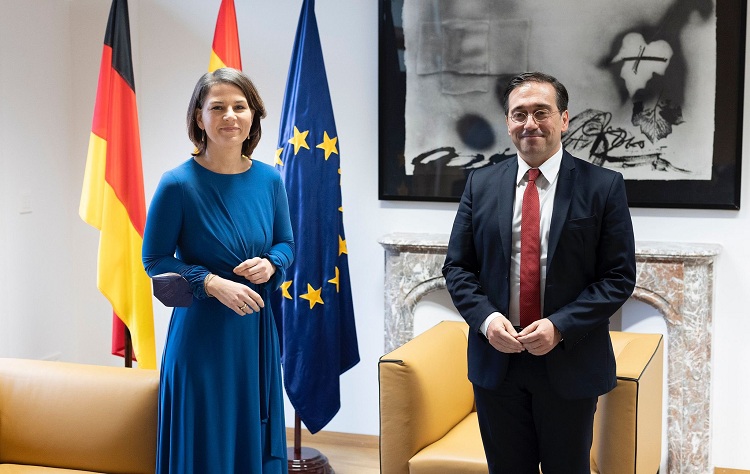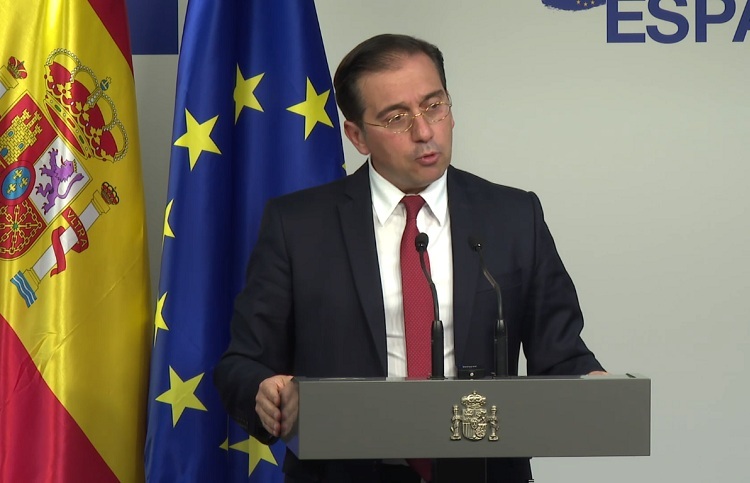The Diplomat
The Minister of Foreign Affairs, José Manuel Albares, held yesterday in Brussels his first meeting with the new head of German diplomacy, Annalena Baerbock, with whom he discussed, among other issues, the reform of the energy market.
The meeting, held at the headquarters of the Spanish delegation in Brussels, was “long and very productive” and revealed a “harmony in practically all the matters we have dealt with”, explained Albares at the press conference following the EU Foreign Affairs Council.
“We have noted that we are two pro-European governments, two progressive governments that have a very similar and coinciding vision on the main European dossiers, and we have made an important emphasis on everything that touches on climate change, and the aspects of foreign policy that have to do with climate change, and on the advancement of gender equality in the world as an important factor in our foreign policy,” he continued.
“We have also discussed the importance of working together for a single European energy market in which energy interconnections in the EU are a central element,” the minister explained. “We have not gone into detail, I have presented the Spanish proposal” and both agreed that the main challenge of the European energy market is “to achieve interconnections at European level, something that Spain has been advocating for many, many years, long before making this energy proposal on the gas market,” he added.
Last September, Pedro Sánchez’s government submitted a proposal to the European Commission to centralize the purchase of natural gas – similar to the unified European scheme for the purchase of vaccines against COVID-19 – in order to contain electricity prices and to carry out a thorough reform of the European electricity market to curb speculation. In October, following the apparent rejection of this first initiative, Spain introduced new proposals that included replacing the current pricing system, based on the cost of gas, with another based on the cost of renewable energies.
In the discussions, Spain only had the support of the countries of the South and the open rejection of a dozen countries led by Germany. On December 1, the German government led a joint declaration by nine countries rejecting any reform of the energy system along the lines of what Spain is proposing, considering that it would mean “a deviation from the principles of competition in the electricity and gas market” and would therefore “undermine the profitability of the energy system”.






